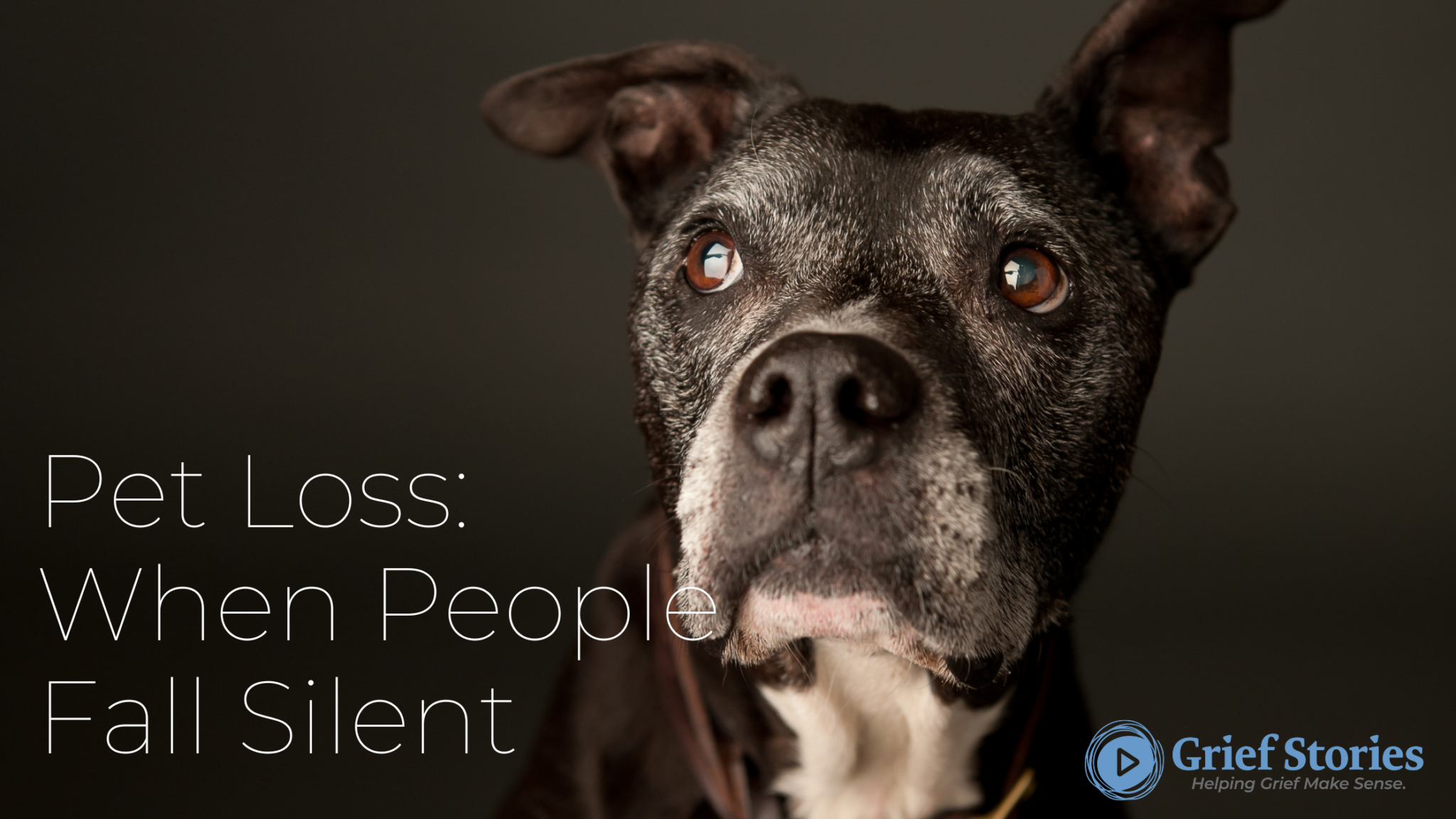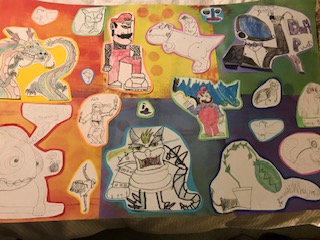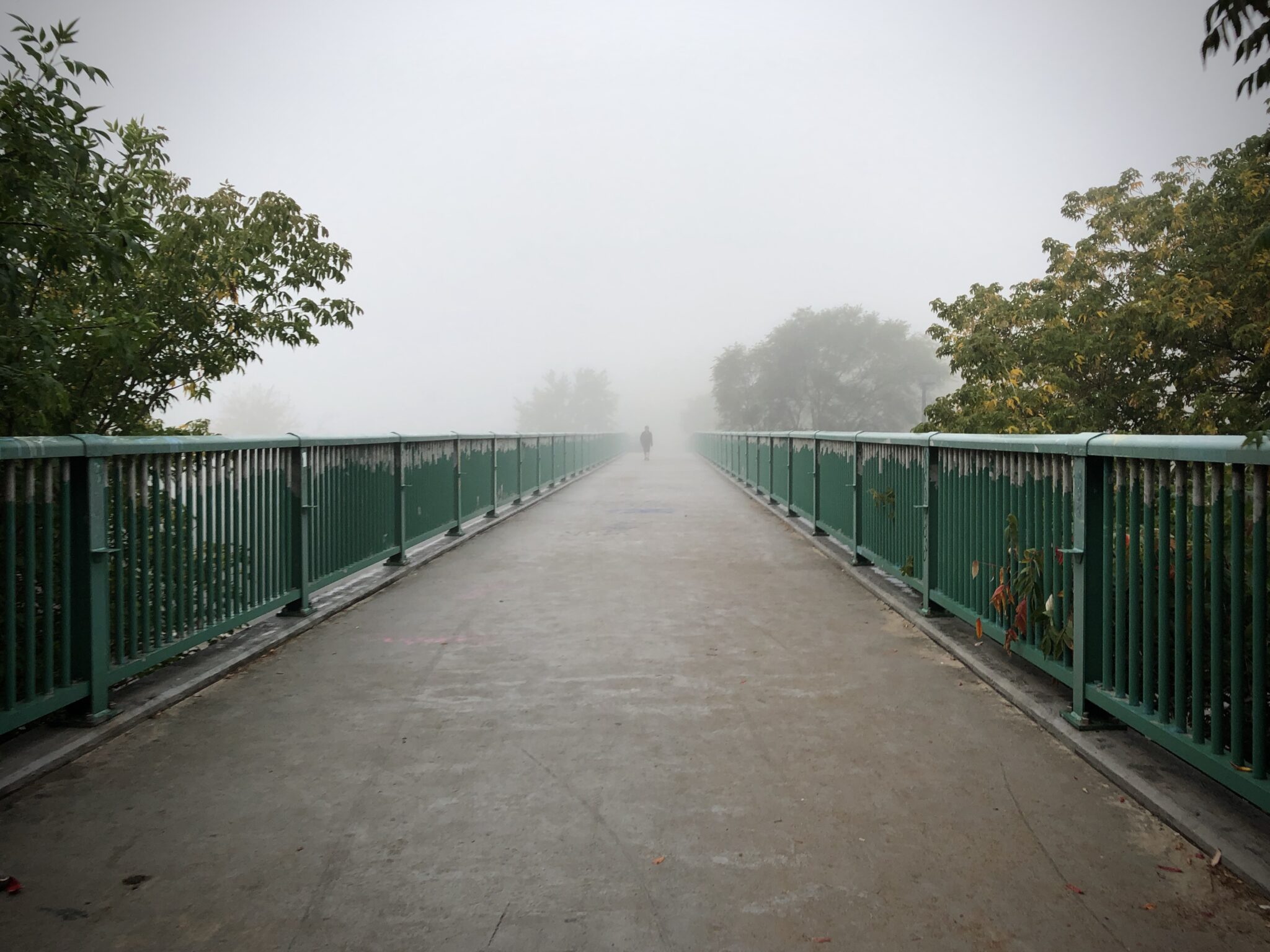Posts Tagged ‘grief story’
Pet Loss: When People Fall Silent
A few days after the birth of my younger brother, my father was taking the dog he and my mother adopted from the humane society, along with my twin and I, to the veterinarian. Years later, my father would share how many times he wiped his eyes on the car ride there. Yoda shared 16 years of her life with my parents. She was there when they went from a family of 3 to 5, and at my mother’s side as we were preparing to welcome our younger brother.
Clifford was just under a year old at the time we said goodbye to Yoda. He and my mom were thick as thieves. He’d keep her company while we were at school, dad was at work, and in her most difficult moments as her cancer progressed.
Clifford was about 9 years old and had a history of health complications before my mother’s death. After her death, we knew he was grieving too. He would search her out, but he began to slow, and other health factors started to creep in. We were just starting to thaw out from the depths of our mother’s death. And now another loss six months later?
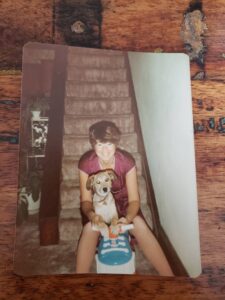 Photo of Jessica’s mother Terry with her dog Yoda.
Photo of Jessica’s mother Terry with her dog Yoda.
Both are sitting on the stairs Jessica’s mother is smiling for the camera holding Yoda in her lap
Why do we question ourselves, and our grief when it comes to pet and other animal losses? Grief is the natural response when we face the loss of something or someone we have a connection to. The grief we feel after a pet dies is a natural response to their loss given the unique relationships we have with our pets. The humans in a pet’s family may be the only ones they know and love in their lifetime. We can experience grief bursts as we navigate this loss: instead of our grief showing up when our loved one no longer walks through the door at 6:00 pm after work, it may be each time we come home and don’t hear their paws hitting the ground as they race to greet us.
Roxy was our first dog a few years after Clifford and my mother’s death. It also felt strange: excited to have a dog again, while also feeling pangs of grief for Clifford. We can hold space for new love, while also still experiencing moments where we miss our old pets who we loved just as equally.
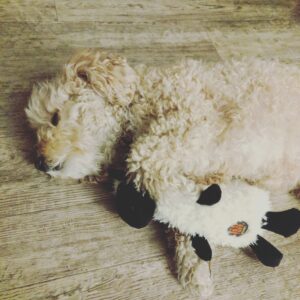 photo of Roxy, a white dog with curly fur laying on her side on a wood floor holding a stuffed sheep
photo of Roxy, a white dog with curly fur laying on her side on a wood floor holding a stuffed sheep
When Roxy was 13, our vet had noticed changes in her health typical for a dog her age. Every time I came home to visit I’d savor my time with her, and wonder, “Would this be the last time?”. A year later, Roxy was now no longer eating or drinking as often, and the vet felt her decline was her way of telling us she was ready to go. She indulged in poached salmon for her final dinner. Early one summer afternoon, my dad sent our family a photo of him lovingly holding Roxy in his arms and looking into her eyes. The note said she had passed onto the rainbow bridge, and he gave her extra hugs from all of us. I held space for the relief that she was no longer in pain, and the grief that I would never give her a belly rub again.
These are just some of my stories, and those reading this may have stories too. The tales where they did something ridiculous. The time they were there for you in your highest highs and lowest lows. The first time you met them. The last time you held them.
It’s important we hold space to share our stories but it can be difficult when pet and animal loss is a form of disenfranchised grief. Disenfranchised grief refers to when society denies a griever’s right, role, or capacity to grieve. This can leave us feeling even more isolated as we grieve. North American settler culture tends to prioritize human death loss over animal loss. But that doesn’t make your grief any less valid. Your grief may come in waves, be gentle with yourself as your body goes through this natural process.
You may experience shadowlosses and secondary losses related to the death of your pet.
I felt a pang when I didn’t hear the clinking of Roxy’s dog tags, expecting her to slowly saunter into the hallway my first visit back after her death. My parents felt lost with what they should do with pet care supplies they couldn’t donate. Many friends where I live have pets and I was able to share some of Roxy’s most treasured items with them, something Roxy would appreciate. But the choice tugged at my heartstrings as I removed these items from my family home.
Each unique bond with our pet is carried within us and you are allowed to honour it in whatever way makes sense. It may be having photos of your pet up in your space. Honour old traditions of your old pet with your new pet – if or when you choose to welcome a new pet into your life. Share stories of your special furry, feathered, fluffy, or scaly pet with your circle. Our stories can help us feel connected to them, and also feel less alone in our grief.
There is no right or wrong way to grieve, only yours.
______________________________________________________________________________________
By Jessica Milette, MSW, RSW . Grief Stories Healthcare Consultant
Jessica is a registered social worker and owner and of Cultivating Connections. Her expertise includes helping individuals and families facing anticipatory grief, ambiguous loss, disenfranchised losses, and sudden deaths. Jessica believes in the power of connection; within ourselves, with those who have died, those we are in relationship with, and with our greater communities. Through sharing our stories of grief and loss, we tend to our connection with those who have died and creating connections with others.
Jessica is a white woman living on the traditional territory of the Anishnabek, the Haudenosaunee, the Attiwonderonk, and the Mississaugas of the Credit peoples, also known as Guelph, ON.
Doodles
By Betsy Fisher
Surviving.
Wading into all the “firsts” I never wanted to see.
On the first anniversary, I invited people who would understand – friends who knew Marshal’s love of art, and his creative spirit. They all came.
I had copied several of Marshal’s doodles of incomplete characters and creatures, with some finished for the kids to color. I eagerly watched to see which doodle or drawing each person chose.
“Hey! That looks like Abraham Lincoln! I want to finish that one.”
“Cool…look at this giraffe! I want to color this one!”
“Whoa, what a cool monster!”
“What is this one?! I think it’s some kind of frog.”
The children sat in the kitchen table or on the porch, clutching crayons with great care and the grownups chose doodles and pieces of something larger, saying, “Oh, yes, Marshal would have loved this.”
People smiled as they drew or colored. I found myself smiling, too, even laughing now and then. I walked among them and as I watched them, I felt things I had not felt before, things I could not name.
I had stressed over “what to do” to mark this date, one year later, where ending and beginning would meet. Marshal took ordinary, simple things, and created magic.
Among the many doodles was one of a man-eating plant. A Venus Flytrap like the one from “Little Shop of Horrors” but with a face and personality of its own. It is stretching over and about to swallow up a stick figure. “Oh snap!” says the figure. “Why me?!”
An 8-year-old boy chose that drawing to color. The little hero had miraculously survived cancer as a toddler, and now he was a full-on, healthy, nothing-but-smiling little boy. We met him, and his mother, at Shands, and we grew to know and love them well in the years to follow.
He remembers Marshal a little – his famous fart sounds, character voices, and artistic creations. Their shared love of Mario. He carries his lunch to school today in Marshal’s Mario backpack. He was so excited to get started.
His picture was so colorful and he showed it to me with such pride. I told him more than once just how much Marshal would have liked what he had done with it.
They all seemed to know how important it was to me. They seemed to know Marshal would be there, too. And he was.
As I took it all in, Marshal seemed so strangely present. I felt a different “alive” than I had felt in that first terrible year of grief. He was my smile, the lump in my throat with every hello and goodbye. He was the twinkle in my eye as I saw their love, as I immersed myself in this afternoon.
I hadn’t been sure I could handle the laughter, or making this saddest of days a happy one, somehow. But I could, and it was.
Many of them left their doodles for me to keep or sent pictures after finishing them at home. A friend took them all and made a simple collage, now in my room.
It is love carrying on. It is my proof. Living proof that just as more can be made from these incredible beginnings of doodles and sketches, more can be made from my story with Marshal. Maybe I can move forward, bringing him along with me.
Legacy. Life. Continuity. Connection.
Always and every day.
If you’d like to draw and color with Marshal’s doodles, email Betsy at marshalsdoodles@gmail.com.
Ghosts From The Past
By Josh Abel
I met Holly riding the bus in our community. She is very attractive with a winsome smile and piercing eyes that I would trade anything for. She was also the bus driver. At that time Holly went to school to become a nurse. After becoming a nurse, Holly didn’t drive the bus that much, but one of her fellow bus drivers mentioned to me that one of Holly’s patients had died and it had a negative impact on her. It brought back ghosts from my past as I also had a job in which people died which had a negative impact on me.
I used to help people deal with their addictions. One former client relapsed and overdosed leaving a one year old child behind. I couldn’t begin to describe how sorry I felt for that one year old. Then there’s the second guessing (guilt). Could I have done more and why didn’t I see this coming? Another former client on one Mother’s day killed two of his next door neighbours. Since that time, Mother’s day has never been the same for me. I felt similar emotions for the family of the two victims. My heart went out to them and although I never met them, somehow this was one of those occasions where saying sorry just isn’t enough. The police did catch my client who wasn’t “at risk” (he came from a nice home, wasn’t involved in gangs) of committing such a crime but it still got to me anyway.
As a caring person, those incidents affected me just as Holly’s affected her. You just can’t take the human part of you out of the equation. I did tell Holly I was sorry for the loss of her patient. Holly is also a caring person and I don’t want her to experience the same negative impact as my situation did with me. They can teach you every aspect of how to perform your job except one: how to deal with second guessing. The guilt will get to you if you let it, especially if you are a perfectionist at your job. Your work ethic teaches you to be the best at your job, but there are things you are going to encounter that you just can’t control. When I started my job I wanted to help people I wanted to make an impact on people’s lives, an idealist. In my case that’s what made the guilt even more of a challenge to overcome. Although I can’t control someone else’s behaviour, Mother’s Day will never be the same for me especially since my own Mother passed away last year.
Holly if you’re reading this you are going to have a lot of success in your job and you probably won’t give it a second thought. Please give the successes more attention than the failures because that’s what makes the job enjoyable (helping people).
Holly’s true reflection is beauty and she made the bus fun to ride.

